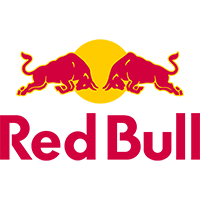
George Peponis and Hazem El Masri are not only two of the greatest Bulldogs in history, but shining examples of immigrant success stories.
They played in two different eras and carved two different paths, encompassing the humble immigrant story; arriving with nothing, working hard and thriving in a foreign land.
The similarities don't stop there, they both hailed from Tripoli; only Peponis came from the heart of Greece’s mainland in the Peloponnese, while El Masri was over 1500km away in the north of Lebanon.
Significantly, they both found themselves in the cultural melting pot of the Canterbury-Bankstown district.
Peponis arrived as the youngest of three in 1954, just nine years after World War II had ceased. He recalled the extents his mother had to go through to ensure that he and his siblings could merely survive.
“When we came out [to Australia] I didn’t have a passport. On the back of my father’s passport there was a little photo with a handwritten date of birth. That was it,” he said on Fox League’s Face-To-Face.
"It was hard post-war, not a lot of money and there was poverty. There was no social security, there was no daycare, there was none of that. When we first moved to Australia, my mother worked across the road in a factory.
Hazem's El Magic Career
“During school holidays she’d lock us in the bedroom, go to work at 7am, come back at 11, feed us, go back to work, lock us up again, come back at midday, feed us, go back to work, lock us up, and then come back at four o’clock and let us out. It was survival.”
The El Masri clan was forced to flee in 1988 during the Lebanese Civil War, one that forced the exodus of nearly one million people from the country across a fifteen-year period.
Just ten years old at the time, the goal-kicking winger still has haunting memories of the war-torn environment he grew up in.
“It was very tough times when we left Lebanon; we were five siblings, [plus] mum and dad. Dad was a carpenter by trade, so he was doing his best to put food on the table,” he told NRL.com.
“Because of the civil war, we weren’t able to go as frequently to school, jobs were very limited at the time.
“We had two of our aunties and uncles move to Australia and we ended up arriving on a refugee VISA at the time. We had to go seek help from The Smith Family and Salvation Army and to their credit they gave us food vouchers.
“My sister was born and two years later there were six of us. We had bunk beds in one bedroom and it brought us together a lot more.
A lot of these things were very difficult at the time, you’d question why you were here or whatever it is, but the safety aspect was probably the major one; not being able to see any rockets, or hearing them.
"When I hear lightning and thunder now, it still takes me back to hearing the whistle of a rocket and not knowing where it was going to land.
“We managed. That’s the beauty of that. You look back now and you go ‘how did we do it?’ but there was a will, and we were able to manage.”
After navigating their way through a new land, a foreign language and inevitably, racism, acceptance and success came in the form of an oval shaped ball and a Blue and White jersey.
Not only that, but it presented opportunities for life outside of football, in Peponis' case, a career in medicine.
“I used to go and sit on the hill and watch them train and watch them play. That’s where I got my love for the Bulldogs,” Peponis declared.
“Football helped with the scholarships which made things easier for my parents, in regard to fees. I used to have jobs on the side, I used to work at the Campsie Hotel on a Thursday and Saturday night, I used to work at a petrol station on Sundays.
“Canterbury came along when I was in the second year of uni and gave me a scholarship. They paid for all my textbooks they paid for all my stethoscopes and all my equipment.
“When I was in my fifth year, I went on an exchange program to Arizona for ten weeks and Canterbury paid for my airfares to do that. I was forever grateful, and I still am for what they did.”
For El Masri, it was the case of a fateful afternoon at a relative's place that set him on the path to glory as a Bulldog.
Face To Face: George Peponis
“We were right near Belmore and we arrived in 1988, the year the Bulldogs won the Grand Final. Just seeing the love talking about Rugby League and the Bulldogs and how the community and cultures just got behind this team,” El Masri explained.
“I was a soccer player playing in Lebanon and when I arrived here, I continued to play soccer. But at a local barbeque at my cousins’, they asked if I wanted to play.
“I still remember my little cousin had his Bulldogs gear on, and I asked what I needed to do. They said it was simple. ‘You see that line? You’ve got to go and run and put it down and you’ve got to stop them from doing the same thing on this line'.
“They kept giving me the ball and I kept weaving through people and putting the ball down. I said ‘That’s it? That’s the game?’ From that day I just fell in love with it.
“I decided to play in Year 12 and there were a few Canterbury selectors at the time, guys like Garry Hughes and Billy Johnstone went down a few times.
1980 Grand Final Highlights: Bulldogs vs Roosters
“They sort of spotted me, but I was just there to have fun and play. I actually didn’t worry about the next stage; all it was for me was [being] in the moment.”
Peponis would carve out a strong reputation as a tough no-nonsense hooker and leader, guiding ‘The Entertainers’ of 1980 to the Club’s first Premiership in nearly four decades.
He would also go on to represent New South Wales, and become the first Canterbury junior to captain Australia while still at the Club.
To this day, he still manages his own business as a general practitioner, highlighting the opportunities that Rugby League gave him throughout his life.
“My focus was to play for Australia and the captaincy was a bonus, a big bonus,” he recalled.
“I look back and that’s an achievement. But what I’ve always said is if you’re captain of any Australian team, you not only represent your country on the field, you’re representing them off the field as well.
“I still remember when I got the captaincy for Canterbury there was a chief selector and ex-football player Ray Gartner, and he said; ‘I know you can do better than you’re doing, and I think the captaincy will do that’. And he was right.
I must say that football opened up a lot of doors, but it also opened up a lot of opportunities. It made life a lot easier. If you’re part of a sporting team rather than just an individual standing over there doing his own thing, you were so much more accepted.
After his fourteen years of first-grade football from 1996-2009, El Masri, one of the greatest wingers of his generation, currently holds the distinction of being the Club's highest point scorer (2418), highest try scorer (159) and most capped first-grade player (317).
He holds numerous other records across both Club and competition history, and wore the jersey of his homeland of Lebanon, Australia and NSW in the representative arena.
Upon reflection, he cited the positive influence and responsibility he has garnered to Canterbury-Bankstown's ever-growing multicultural community.
“Schools took notice and wanted you to come and make player appearances, and the kids were going crazy,” he said.
You’d go to the local mosque to pray, and you see the kids and I thought ‘this is all new to me’. You start to know what it’s all about and how influential you can be towards these young kids, how you can play a role in their life.
“Multicultural Day was one of my favourites. You saw the Chinese with their dress code, and their dragon dancing away, the Vietnamese, the Lebanese with their drums and you saw the Italians and the Greeks; the Islanders and Africans with their vibrant colours.
“It’s wonderful to see everybody bringing something to the table, it’s been a great day to look forward to especially now with all these players with different backgrounds being able to express themselves.”
Hall of Fame: Hazem El Masri
As of 2025, nearly 800 men have represented the Canterbury-Bankstown Bulldogs’ first-grade side since 1935.
Only eight players, regarded as the greatest to have ever worn the Club’s proud colours are inducted in the Bulldogs Hall of Fame, the three most recent announced in February during the Club’s Gala Night.
Peponis and El Masri are two of those eight Hall of Famers.
But not only that, they are both two great reminders of the rich and diverse multicultural landscape of Rugby League.
















